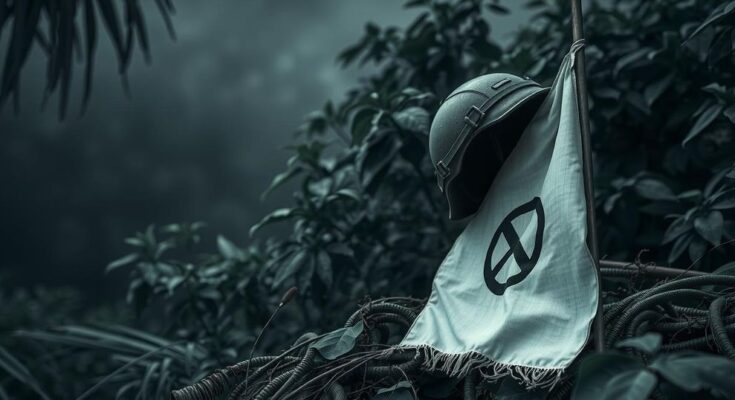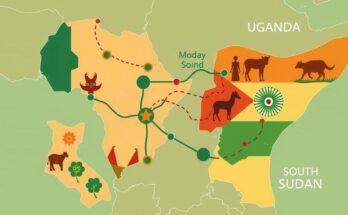Thirteen peacekeepers were killed in DR Congo during clashes with M23 rebels, prompting global calls for ceasefires. The UN is evacuating non-essential personnel, while the M23 demands military surrenders to prevent bloodshed. The conflict has displaced over 400,000 and exacerbated humanitarian crises in the region.
Thirteen soldiers affiliated with peacekeeping efforts in the Democratic Republic of Congo (DRC) were killed in clashes with the M23 rebel group. The South African military reported that nine of their personnel died during operations near Goma, alongside three Malawian and one Uruguayan peacekeepers. In response to the escalating violence, the United Nations has pulled out all non-essential staff from Goma, a city with a population exceeding one million.
As fighting intensifies, calls for an end to the violence have come from global leaders, including French President Emmanuel Macron, who discussed the situation with DRC and Rwandan authorities. The UN Security Council accelerated discussions on the conflict, initially scheduled for a later date, to address the growing crisis. Amid these developments, the M23 has demanded the surrender of Congolese troops in Goma to avert further bloodshed.
The M23’s actions have been particularly aggressive, including the recent killing of a Congolese military governor. This situation has deteriorated to the point that over 400,000 individuals have been displaced this year due to the conflict, with local reports indicating more than 200 civilian fatalities in areas under M23 control. The humanitarian crisis worsens as hospitals in Goma struggle to accommodate those affected by the violence.
Denunciations of the M23’s actions have come from various leaders, including Angolan President Joao Lourenco and EU foreign policy chief Kaja Kallas, who condemned Rwanda’s support for the group. Human Rights Watch has also raised alarms about civilian safety amid military confrontations, while critics accuse Rwanda of exploiting the M23 for access to eastern DRC’s rich mineral resources.
The M23 rebellion traces its roots to an offshoot of another group in 2012, aimed initially at protecting the Tutsi community from discrimination. However, the ongoing struggle for control has led to widespread suffering. As political tensions remain high, the complex interplay of historical grievances and international dynamics continues to fuel unrest in the region.
The Democratic Republic of Congo has experienced prolonged conflict due to various rebel groups, notably the M23, which emerged in 2012. This group originally claimed to protect the Tutsi minority, but has since been accused of exploiting the region’s valuable resources, creating a humanitarian crisis. Tensions with neighboring Rwanda further complicate the situation, as both countries maintain conflicting narratives regarding support for rebel factions.
The killing of thirteen peacekeepers by M23 rebels highlights the escalating violence in the Democratic Republic of Congo. International leaders are urgently calling for peace while the humanitarian situation continues to deteriorate, affecting hundreds of thousands. As diplomatic efforts intensify, the need for immediate action to protect civilians and stabilize the region remains paramount.
Original Source: www.bbc.com




